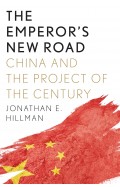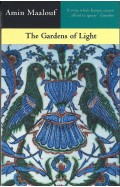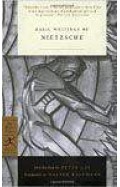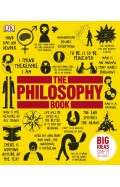- Home
- Categories
- Non Fiction
- Politics & Current Affairs
- How the World Thinks: A Global History of Philosophy
How the World Thinks: A Global History of Philosophy
By: Julian Baggini
-
Rs 2,965.50
- Rs 3,295.00
- 10%
You save Rs 329.50.
Due to constant currency fluctuation, prices are subject to change with or without notice.
* SUNDAY TIMES BESTSELLER*
'There to fill the Sapiens-size hole in your life' Observer
In this groundbreaking global overview of philosophy, Julian Baggini travels the world to provide a wide-ranging map of human thought.
One of the great unexplained wonders of human history is that written philosophy flowered entirely separately in China, India and Ancient Greece at more or less the same time. These early philosophies have had a profound impact on the development of distinctive cultures in different parts of the world. What we call 'philosophy' in the West is not even half the story.
Julian Baggini sets out to expand our horizons in How the World Thinks, exploring the philosophies of Japan, India, China and the Muslim world, as well as the lesser-known oral traditions of Africa and Australia's first peoples. Interviewing thinkers from around the globe, Baggini asks questions such as: why is the West is more individualistic than the East? What makes secularism a less powerful force in the Islamic world than in Europe? And how has China resisted pressures for greater political freedom?
Offering deep insights into how different regions operate, and paying as much attention to commonalities as to differences, Baggini shows that by gaining greater knowledge of how others think we take the first step to a greater understanding of ourselves.
* SUNDAY TIMES BESTSELLER*
'There to fill the Sapiens-size hole in your life' Observer
In this groundbreaking global overview of philosophy, Julian Baggini travels the world to provide a wide-ranging map of human thought.
One of the great unexplained wonders of human history is that written philosophy flowered entirely separately in China, India and Ancient Greece at more or less the same time. These early philosophies have had a profound impact on the development of distinctive cultures in different parts of the world. What we call 'philosophy' in the West is not even half the story.
Julian Baggini sets out to expand our horizons in How the World Thinks, exploring the philosophies of Japan, India, China and the Muslim world, as well as the lesser-known oral traditions of Africa and Australia's first peoples. Interviewing thinkers from around the globe, Baggini asks questions such as: why is the West is more individualistic than the East? What makes secularism a less powerful force in the Islamic world than in Europe? And how has China resisted pressures for greater political freedom?
Offering deep insights into how different regions operate, and paying as much attention to commonalities as to differences, Baggini shows that by gaining greater knowledge of how others think we take the first step to a greater understanding of ourselves.
How the World Thinks: A Global History of Philosophy
By: Julian Baggini
Rs 2,965.50 Rs 3,295.00 Ex Tax :Rs 2,965.50
Zubin Mehta: A Musical Journey (An Authorized Biography)
By: VOID - Bakhtiar K. Dadabhoy
Rs 472.50 Rs 1,050.00 Ex Tax :Rs 472.50
Saladin: The Life, The Legend And The Islamic Empire
By: John Man
Rs 2,245.50 Rs 2,495.00 Ex Tax :Rs 2,245.50
Emotional Intuition for Peak Performance
By: Jason Gregory
Rs 2,401.75 Rs 3,695.00 Ex Tax :Rs 2,401.75
Infinite Powers: The Story of Calculus - The Language of the Universe (PB)
By: Steven Strogatz
Rs 1,885.50 Rs 2,095.00 Ex Tax :Rs 1,885.50
The Holy Roman Empire: A Short History: Hardcover
By: Barbara Stollberg-rilin
Rs 2,996.25 Rs 3,995.00 Ex Tax :Rs 2,996.25
The Emperor's New Road: China and the Project of the Century
By: Jonathan E Hillman
Rs 2,202.75 Rs 4,895.00 Ex Tax :Rs 2,202.75
The Quest For Meaning: Developing A Philosophy Of Pluralism
By: Tariq Ramadan
Rs 1,255.50 Rs 1,395.00 Ex Tax :Rs 1,255.50
The Basic Writings of Nietzsche
By: Peter Gay/Sigmund Freud
Rs 3,775.50 Rs 4,195.00 Ex Tax :Rs 3,775.50
Saladin: The Life, The Legend And The Islamic Empire
By: John Man
Rs 2,245.50 Rs 2,495.00 Ex Tax :Rs 2,245.50
Emotional Intuition for Peak Performance
By: Jason Gregory
Rs 2,401.75 Rs 3,695.00 Ex Tax :Rs 2,401.75
Infinite Powers: The Story of Calculus - The Language of the Universe (PB)
By: Steven Strogatz
Rs 1,885.50 Rs 2,095.00 Ex Tax :Rs 1,885.50
The Holy Roman Empire: A Short History: Hardcover
By: Barbara Stollberg-rilin
Rs 2,996.25 Rs 3,995.00 Ex Tax :Rs 2,996.25
The Emperor's New Road: China and the Project of the Century
By: Jonathan E Hillman
Rs 2,202.75 Rs 4,895.00 Ex Tax :Rs 2,202.75
No recently viewed books available at the moment.
Zubin Mehta: A Musical Journey (An Authorized Biography)
By: VOID - Bakhtiar K. Dadabhoy
Rs 472.50 Rs 1,050.00 Ex Tax :Rs 472.50
How the World Thinks: A Global History of Philosophy
By: Julian Baggini
Rs 2,965.50 Rs 3,295.00 Ex Tax :Rs 2,965.50
Saladin: The Life, The Legend And The Islamic Empire
By: John Man
Rs 2,245.50 Rs 2,495.00 Ex Tax :Rs 2,245.50
Emotional Intuition for Peak Performance
By: Jason Gregory
Rs 2,401.75 Rs 3,695.00 Ex Tax :Rs 2,401.75
Infinite Powers: The Story of Calculus - The Language of the Universe (PB)
By: Steven Strogatz
Rs 1,885.50 Rs 2,095.00 Ex Tax :Rs 1,885.50
The Holy Roman Empire: A Short History: Hardcover
By: Barbara Stollberg-rilin
Rs 2,996.25 Rs 3,995.00 Ex Tax :Rs 2,996.25
The Emperor's New Road: China and the Project of the Century
By: Jonathan E Hillman
Rs 2,202.75 Rs 4,895.00 Ex Tax :Rs 2,202.75












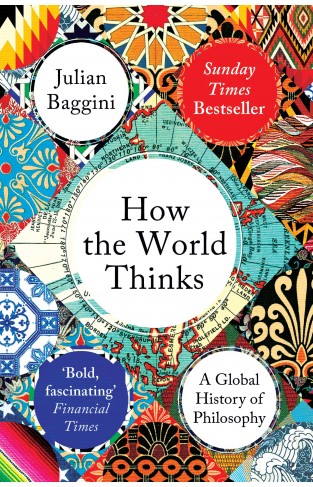
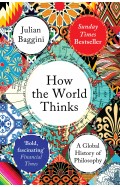
-120x187.jpg?q6)





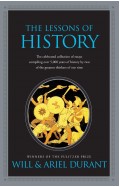
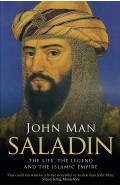
-120x187.jpg?q6)
-120x187.jpg?q6)

